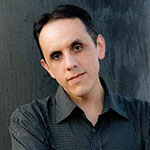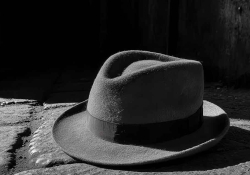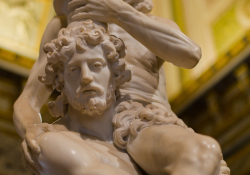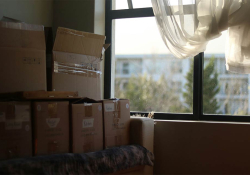North Star

Aboard the North Star IX
December 26, 208. . .
My dear Celeste:
First, allow me to say that you were right, so many years ago, when you said that this time would come. Cruises have become terribly fashionable. The ships that used to travel the Caribbean and had tropical names have become “floating hotels” and now travel from Prudhoe to the resorts in Novaya Zemlya, or from Tromsø to Victoria Island, passing through the North Pole, exactly ninety degrees north latitude.
Yes, the one that was covered with ice for millions of years. I’ve seen it, Celeste. You were also right about being able to go there in winter, as we have now, where Lino and I just celebrated Christmas. It’s not fake news. You must tell that to the people at the Institute.
Because you’re still there, aren’t you, Celeste? I continue to count—it’s been four years, nine months, and twelve days since we’ve heard anything from anywhere south of Colorado. And honestly, as I always say in every message I send you, I feel so guilty for abandoning you, but you do know I wasn’t the only one. In fact, you should all be here. If there’d been justice when they cut off travel . . . You know that Lino’s position helped us, and that I did it for my children.
There are lots of tourist routes here in the new Northern Ocean: millions of square miles of polar ice have melted. Ships can sail almost anywhere they wish, and it’s possible to go for days without seeing an ice floe, a cargo ship, or an oil rig. . . .
As I’ve told you before, I don’t know if my messages are still getting through to you, Celeste. I encrypt them by hand on paper, just as you taught us. Here at sea I do more or less the same as on land: I hand the messages to a particular officer, who in turn passes them on to the smugglers once we reach port. They keep saying they will reach you. We made it as far as Costa Rica, they say. Or so the officer told me the other day. I have my doubts because he, like all the other middlemen, also says that the smugglers still can’t deliver any replies. Because doing so is more dangerous. Perhaps it is. Or perhaps they just do nothing. Perhaps no one ventures south of here, carrying our letters. Perhaps they just charge us, me, the captain, other passengers—I suspect even Lino, although he’s never said anything to me—for the luxury of feeling less guilty. So we can all repeatedly apologize for leaving you to die.
When people saw that the warm zones were uninhabitable and unsalvageable, they were going to behave as if the universe ended at the thirty-ninth parallel north.
But you’d said something like this would happen. I remember. You said that once there was no turning back, when people saw that the warm zones were uninhabitable and unsalvageable, they were going to behave—we were going to behave—as if the universe ended at the thirty-ninth parallel north. “They’re going to wait until everyone dies down here, so they can come back, clean up, and build factories, or mines, or who knows what. Like the ones we’ve had here since the sixteenth century, but bigger.” I haven’t forgotten that.
When I don’t feel so bad, I imagine you, the people at the Institute, tearing these messages up as soon as they get to you.
I hope not. If you’d had children, you’d understand.
Please believe me when I say that I care. That I care about all of you.
You know, I shouldn’t be writing this. It’s illegal. You can’t understand the pressure here. Lino always says that we “deserve” to be here, that it was natural selection. That he earned the vice president position at the company because he was the best. That we’re not to blame for global warming. That you all are responsible for not having left when there was still time. . . .
But no. I shouldn’t say any more about that. It’s better that I move on to something else.
We celebrated Christmas with a dinner dance outside on one of the promenade decks. Lots of music, lots of alcohol, lots of food. I didn’t deny myself anything: there’s no point because leftovers get thrown away. We put on coats—more than anything else because it was polar night season. Right before twelve o’clock, the band stopped, and the master of ceremonies proposed a toast. One that’s become a tradition: “To new opportunities, peace on this side of the world, and those who aren’t with us.”
Do you understand? Those who are not with us are you and everyone else. Those who live there. And the people who used to live here too. The Eskimos!
(Inuit, I know. That’s another thing you were right about. There are none left. They say they’re being sent to reeducation camps in Alaska, but I don’t believe it.)
And we speak the words with a straight face because we haven’t forgotten you. We really haven’t. In the end, what has happened to the world is tragic.
There’s no harm in feeling better for acknowledging it, is there, Celeste?
And there’s no harm in feeling better for acknowledging it, is there, Celeste? The band went back to playing, but many of us returned to our cabins right away. And today I’ll give this letter to the same officer, to send to the same smugglers. Just like the others, I pretend not to notice when I see someone near their cabin with a slip of paper in their hand, or tucked into their tablet case. It’s a huge industry, clandestine, of course. They say it thrives especially during times like these.
Can you believe that I’m sorry, Celeste, that many of us are?
Can you accept a “Merry Christmas”? Can you tell me at least once that you’re all still alive?
Wishing you all the best,
Cora
Translation from the Spanish
Editorial note: Chimal’s story “The Grand Experiment,” also translated by George Henson, headlined the Summer 2019 climate issue of WLT. Henson’s review of Richard Blanco’s Homeland of My Body (Beacon, 2023) is the featured review in the January 2024 issue of WLT.

















